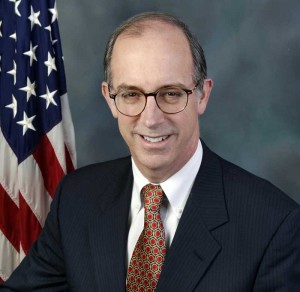State Rep. says higher ed. cuts more of concern, supports Corbett’s call for pay freeze
By Mike McGann, Editor, UnionvilleTimes.com
As the Chinese curse suggests, “may you live in interesting times.”
And while the current fiscal environment might be a tad too interesting for some local residents and taxpayers, a local state legislator says he wasn’t terribly surprised by the details of Gov. Tom Corbett’s proposed state budget — but does express worry that some burdens pushed on local and county governments will come at a time when they are least able to handle it.
“It’s pretty much what I expected,” said State Rep. Chris Ross (R-158, which includes Newlin, East Marlborough, West Marlborough and Pennsbury in the Unionville area). Ross said he expected fairly large cuts across the board in reaction to the loss of $2.6 billion in federal stimulus funds, in addition to roughly a $2 billion shortfall in the state’s finances, which led various estimates of a $4 to $5 billion deficit in the 2011 budget.
The long-time state representative said there’s been some confusion about some aspects of the budget, specifically about increases to the state Welfare budget. Because some budget lines were entirely wiped out — such as some of the funds given to counties for their local welfare operations, welfare programs did take some hits. But Ross did express some disappointment in the seeming lack of going after the roughly $1 billion in waste, billing errors and fraud identified by Auditor General Jack Wagner in 2010.
And while there has been some concern about the spending cuts for education — roughly $1.3 billion — Ross said it’s important that they be put into perspective. He noted that local school districts had seen recent boosts in funding over the last couple years from the stimulus funds, boosts they knew were temporary.
“I made it a point to tell all of my local school districts not to count on these funds,” Ross said. “They knew it was going to disappear this year.”
Ross noted that it’s important to put it in context: “It’s about ½% of the Unionville budget and about 2% of Kennett’s budget,” he said, noting that while it will have an impact, it shouldn’t be devastating. Unionville stands to lose just over $478,000, while Kennett will lose $1.49 million.
Ross said he supports Corbett’s call for a pay freeze for school employees.
“I think we all need to look at that in the public sector,” Ross said. “There are a lot of people suffering right now, not just with pay freezes, but pay cuts and job losses. We can’t expect those people to pay someone else’s pay raise.”
Ross said he hopes removing some mandates and requirements from school districts and local municipalities will help them to save money and cushion some of the impact of funding cuts.
The proposed roughly 52% cuts to higher education — the state’s colleges and university — are another matter. Ross said that the state schools had already been asked to tighten their belts over the last couple of years, making these cuts a lot harder to absorb both for the schools and the students, who will likely be asked to pay higher tuition. Ross said he hoped that if some of the funding couldn’t be restored, he hoped there could be an option to provide direct aid to students. Still, either way such expenditures can only happen by finding savings elsewhere.
Ross said that balancing needs is going to be the biggest challenge throughout the budget process.
“There are places we’re going to have to look at carefully,” Ross said. “The key is try to find out which pain is tolerable and which isn’t,” he said referring to program cuts.
Ross also said he welcomed the end of the so-called “Walking Around Money” community development grants. The program was widely criticized for allowing state legislators to steer funds to pet projects — and it is alleged that party leaders in both parties used the funds to strong arm legislators into getting votes they needed.
“That’s nothing something I was willing to do,” Ross said. “Frankly, I never understood the point of voting for something you don’t support.”
Although many continue to call for a severance tax on the Marcellus Shale Gas Field, Ross said he doesn’t think one will emerge — the governor has made it clear he opposes such a tax. Ross said he does think some sort of impact fee will likely be levied to help counteract costs to local municipalities and the state. Ross said he previously has been open to a modest severance tax, and would continue to be, but thinks it is unlikely to have enough votes to pass.







